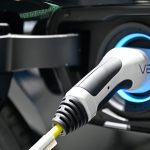
The British government has set a decisive goal: by 2030, the sale of new petrol and diesel vehicles, including motorhomes, will be banned. This policy is part of a broader strategy to achieve net-zero carbon emissions by 2050. As the deadline approaches, the motorhome industry and enthusiasts alike are gearing up for a significant shift.
Current State of Motorhomes
Today, the majority of motorhomes on the market are powered by petrol and diesel engines. The demand for these traditional vehicles remains robust, suggesting that the transition to electric motorhomes will be gradual. Despite the upcoming ban on new petrol and diesel vehicles, fuel supplies for existing internal combustion engine (ICE) motorhomes are expected to last for decades, ensuring their usability well beyond 2030.
The 2030 Deadline
The impending 2030 deadline is a cornerstone of the UK’s environmental policy. By prohibiting the sale of new petrol and diesel vehicles, the government aims to reduce carbon emissions significantly. This move aligns with global commitments like the Paris Agreement, reflecting the UK’s dedication to combating climate change and promoting sustainable practices.
The Journey to Electric Motorhomes
Transitioning to electric motorhomes presents several challenges. One of the primary issues is the limited range of current electric vehicles, particularly those capable of handling the weight and demands of a motorhome. However, advancements in battery technology and the potential development of hydrogen-powered motorhomes offer promising solutions. These innovations could significantly extend the range and efficiency of electric motorhomes, making them a viable option for future buyers.
Impact on Used Motorhomes
The shift to electric motorhomes will also affect the market for used ICE motorhomes. There is uncertainty about the future value of these vehicles. However, the potential cost savings of purchasing a used diesel motorhome compared to a new electric one could make used motorhomes an attractive option for some buyers. This dynamic will play a critical role in the transition period leading up to and following the 2030 deadline.
The Road Ahead for Manufacturers
For motorhome manufacturers, the transition to electric vehicles represents both a challenge and an opportunity. Significant investment in research and development is necessary to create efficient and affordable electric motorhomes. This shift also opens the door to innovative designs and functionalities that leverage the absence of traditional engines and exhaust systems. The industry must adapt quickly to meet the evolving demands of consumers and regulatory bodies.
Motorhome Insurance in the Electric Era
As motorhome owners consider the switch to electric vehicles, they must also think about motorhome insurance. Comprehensive coverage protects against the financial impacts of unexpected damages or theft, whether on the road or at a campsite. With the right insurance, owners can enjoy their travels with peace of mind, knowing they are protected against various risks.
Cost Implications of Electric Motorhomes
Initially, electric motorhomes are expected to be more expensive than their petrol and diesel counterparts. The high costs associated with manufacturing electric vehicles will likely drive up the prices. However, as technology advances and production scales up, prices are expected to decrease, making electric motorhomes more accessible to a broader audience.
Impact on Motorhome Campsites
The rise of electric motorhomes will necessitate changes at campsites. Facilities will need to invest in on-pitch charging stations to accommodate electric vehicles. This investment could lead to higher site prices, potentially causing some discontent among the motorhome community. Campsite operators must balance these upgrades with maintaining affordability for their customers.
Addressing the Payload Problem
One significant challenge for electric motorhomes is the payload issue. Electric vehicles are generally heavier than their ICE counterparts, which can limit the payload capacity. This limitation can be problematic for motorhome owners who require ample payload for their travels. Addressing this issue will be crucial for the widespread adoption of electric motorhomes.
While the 2030 deadline for banning new petrol and diesel motorhomes may seem drastic, it represents a necessary step towards a sustainable future. Continuous advancements in technology, including potential hydrogen-powered motorhomes, make the transition to electric vehicles promising. The motorhome industry, along with enthusiasts, must embrace these changes to pave the way for a greener, more sustainable future in travel and leisure.












